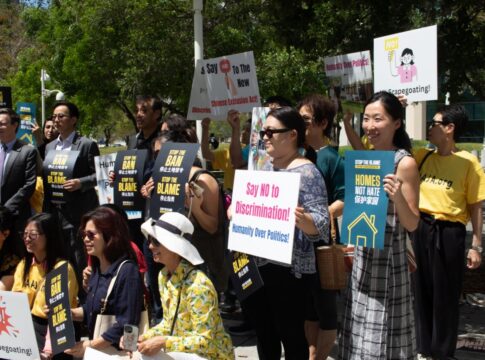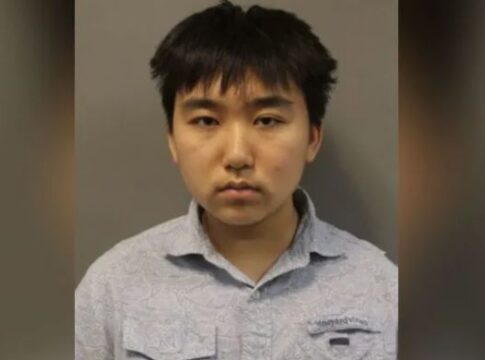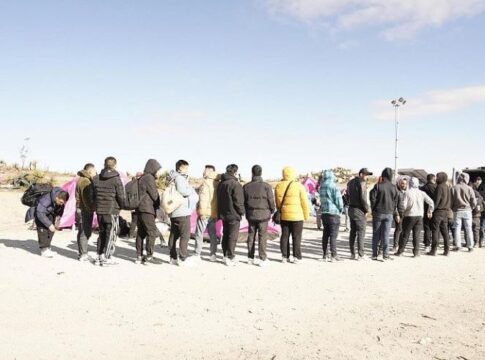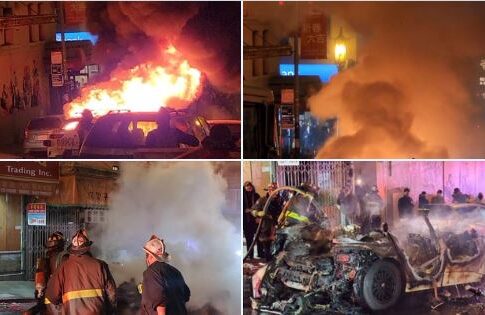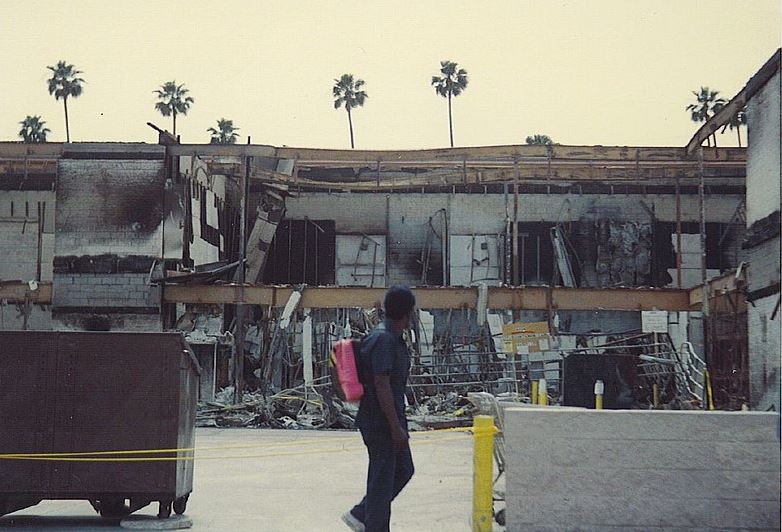By Zachary FR Anderson, AsAmNews Staff Writer
Earlier this week, as the news of the mass shooting at Robb Elementary School in Uvalde, Texas came rolling in, the too-familiar cycle of grief was interrupted by rage when it became apparent that when law enforcement was called upon to serve and protect, they did neither.
Sidenote: Read the New York Times’ reporting of events, it’s heavy.
This is not the first time that law enforcement has failed to protect a school. In 2019, a former Broward County Sheriff’s deputy who was the uniformed resource officer at Marjory Stoneman Douglas High School during the 2018 mass shooting, was charged with, among other things, child neglect for failing to enter a building on campus during the shooting.
The Miami Herald reported that during the shooting, the officer also radioed others, “Do not approach the 12 or 1300 building. Stay at least 500 feet away.”
LATEST STORIES
The relationship between police and BIPOC communities in this country has never been good. We know this from their response to the George Floyd protests of 2020; from music and film; from Operation Wetback; and the countless names of people who lost their lives to excessive force.
In all these examples, the priority was never the enforcement of law, but of power. And in the context of AA/NHPI communities, it is no different.
In the 1990s, the Asian American prison population grew to 250 percent, according to YWCA of Columbus, Ohio, which also reported that Asian youth was twice as likely, compared to youth, to be tried as adults.
During the 2019 protests by Native Hawaiian activists against the building of a research telescope on Mauna Kea, the full power of Hawaii’s law enforcement community came together to stop the protests–– according to one activist, it was the largest police action in Hawaii after the 1898 overthrow of the Hawaiian monarchy.
However, the true role of police becomes clearer, not through their action, but through their inaction. The most infamous example of this being the 1992 LA Uprising–– one of the most consequential moments in Asian American History.
In March 1991, on a dark residential street, four LAPD officers were caught on camera beating Rodney King. Two weeks later, 15-year-old Latasha Harlins entered Empire Liquor Market in South Central. The owner, Soon Ja Du, accused Harlins of stealing a bottle of orange juice and the two got into a scuffle. Store security footage shows the melee as well as Du shooting Harlins in the back of the head, killing her.
That November, Du was found guilty of voluntary manslaughter, but she received no prison time. Six months later, the four officers involved in King’s beating also received lenient sentences compared to what many–– including the then LA Police Commissioner–– believed was excessive use of force.
The two verdicts sparked the 1992 Los Angeles Uprising and for six days the city was taken over by riots and looting. In particular, the violence headed for Koreatown–– the backdrop of some of the most startling images of the Uprising, including a visible absence of law enforcement.
With no police protection, Korean shop owners–– many of them South Korean military veterans–– armed themselves to protect their businesses.
Grace Nguyen, the owner and CEO of the jewelry line LOUPN, was eight years old during the uprising. She and her family had immigrated from South Korea two years earlier and she remembered being a happy-go-lucky kid who had integrated easily into American society.
“I remember being excited to come to the US,” Nguyen told AsAmNews. “Coming here I felt such a sense of freedom.”
Nguyen’s family lived 50 miles east of Koreatown in Claremont, where her father worked in a liquor store part-time while pursuing graduate studies at Claremont School of Theology. During the uprising, he and co-workers armed themselves to protect the store–– just like their counterparts in Koreatown.
“I remember feeling such a sense of pride that they were standing up for us when the police were not,” said Nguyen.
Ted Kim grew up in San Jose and was not immediately impacted by the Uprising until he left for school at UC Irvine where he met other Korean students whose families were affected by the riot.
“Even though I was not physically in [Los Angeles] when the riots happened, it’s a big part of my life,” Kim told AsAmNews. “Just being a Korean American living in LA, you see, hear and feel the residual impact of it.”
At the end of the uprising, some 63 people were dead, 2,300 were injured, and 4,500 businesses were looted and destroyed–– more than half of them were Korean/Asian-owned.
I have ruminated on these events and the Uvalde shooting for four days now. But the Uvalde police inaction made me relive a memory of my own interaction with power.
When I was in 8th grade and growing up in Santa Barbara County, I was standing outside of my fifth period classroom waiting to be let in. I’m not sure what happened in the class before us, but a sheriff’s deputy walked out. I alongside some of my classmates cracked some jokes when he passed by–– “Hey, do you smell bacon?” I remember saying to nobody in particular. Then someone else–– my friend who was Latino–– made a loud squealing noise and the officer turned around, marched straight to the classroom, and demanded from our teacher that we apologize.
Nobody admitted guilt until after he the officer left–– someone else told the principle about my joke, and so I got in trouble too.
A few days later, me and the squealing boy were called into the principal’s office to apologize to the officer.
After he accepted the apology, he made one point clear–– “You know, what’s going to happen if someone comes here with an automatic weapon and I’m the only one able to respond?” he said to us, “I might just not be motivated or inclined enough to come and protect you.”
Perhaps, the officer thought that he had taught two smart-ass kids about the value of respect. But what I learned was that as a police officer, he had the power to protect us from danger.
And he decided that we were not worth protecting.
AsAmNews has Asian America in its heart. We’re an all-volunteer effort of dedicated staff and interns. Check out our new Instagram account. Go to our Twitter feed and Facebook page for more content. Please consider interning, joining our staff, or submitting a story, or making a financial contribution.


